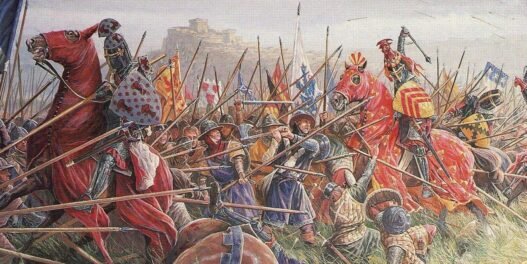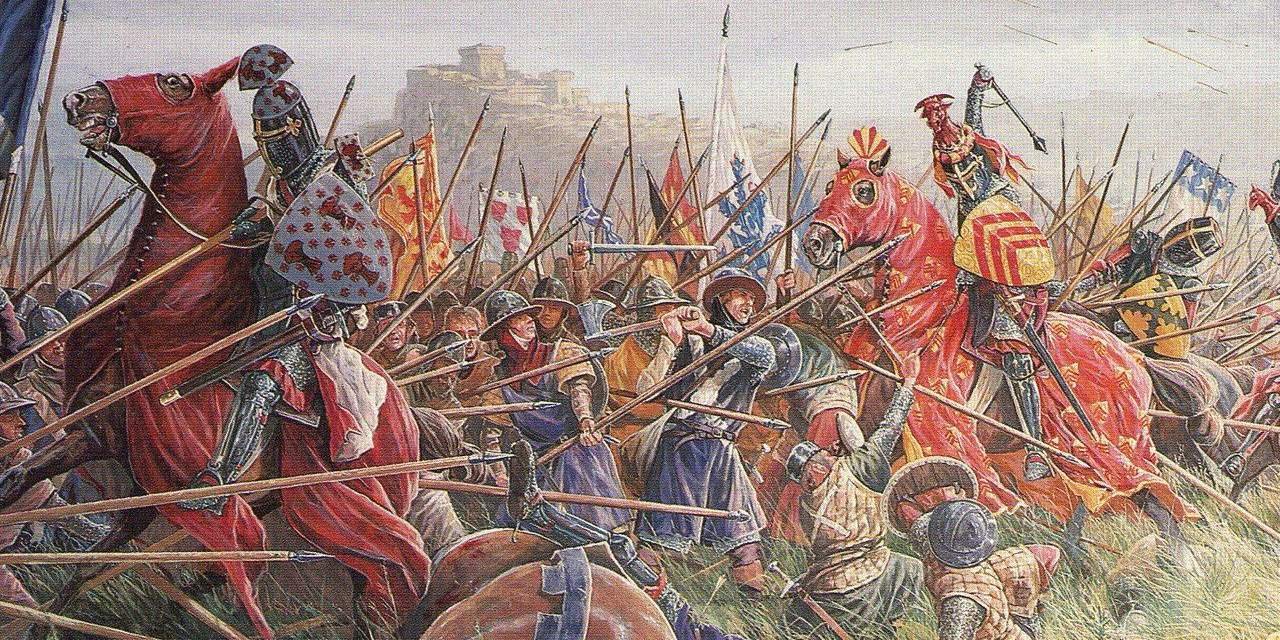The outcome of any battle depends on numerous factors. The equipment of the troops, intelligence data, the training of the soldiers, and the strategy chosen by the commander all play a role. Sometimes, the personal courage of an individual can be key, but there are also instances where blind luck grants victory to one side. An unpredictable event or an incredible coincidence can turn the tide of battle, transforming an easy win into a catastrophic defeat.
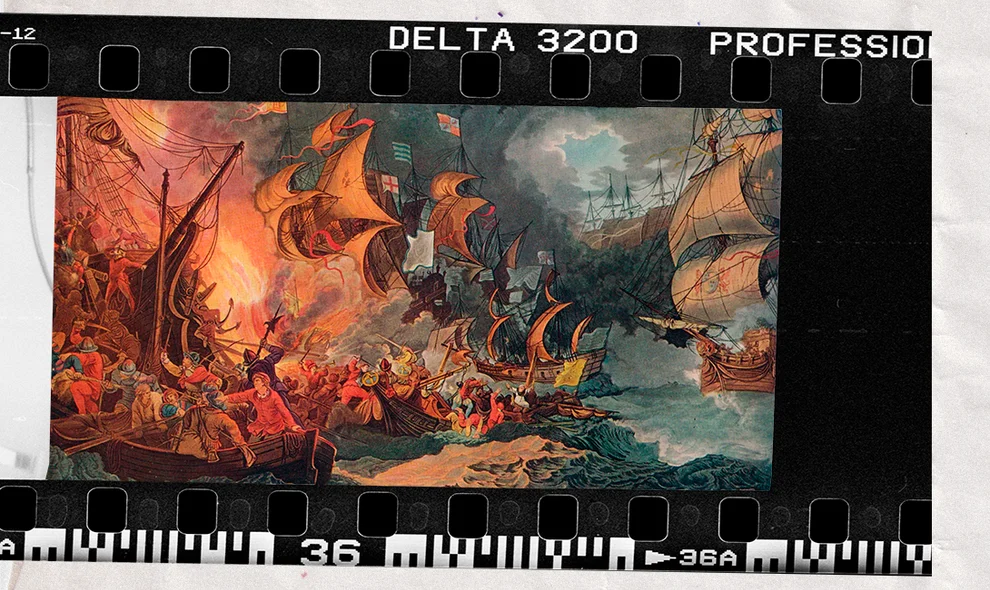
The Storm That Sank the Invincible Armada
By the end of the 16th century, Spain was the most powerful European state, extending its influence far beyond the continent. Its treasury was filled by countless colonies in South America, but a problem arose. Its name was Britain. For decades, English privateers had been plundering and sinking ships sailing from the New World. The year 1582 marked a turning point when the Spanish crown lost 1,900,000 ducats, equivalent to the annual budget of the empire. Philip II decided to put an end to piracy once and for all. To achieve this, an unprecedented fleet needed to be assembled. On May 29, 1588, the Invincible Armada set sail from the port of Lisbon, heading for the English Channel.
"The Lord God Himself will lead us, and with such a captain, we have nothing to fear." – Pedro de Ribadeneira
With 130 ships and 30,000 soldiers and sailors, the Armada moved towards Britain. It seemed that Queen Elizabeth I was doomed, as nothing could stop such a force. However, the Armada suffered its first losses before even leaving Spanish territorial waters. A terrible storm began, giving the English time to prepare for defense. The battered fleet eventually reached the southwest coast of England, where it encountered comparable enemy forces under the command of Francis Drake. The battle lasted a week, with neither side achieving a decisive victory. Seeing their supplies running low, the Spanish admiral Alonso Pérez made the decision to retreat, but it wasn’t easy. Another storm hit, scattering the Invincible Armada. Only 60 ships made it back home, with over half of the crew lost. This event marked the beginning of Britain’s rise, eventually earning the title “Mistress of the Seas.”
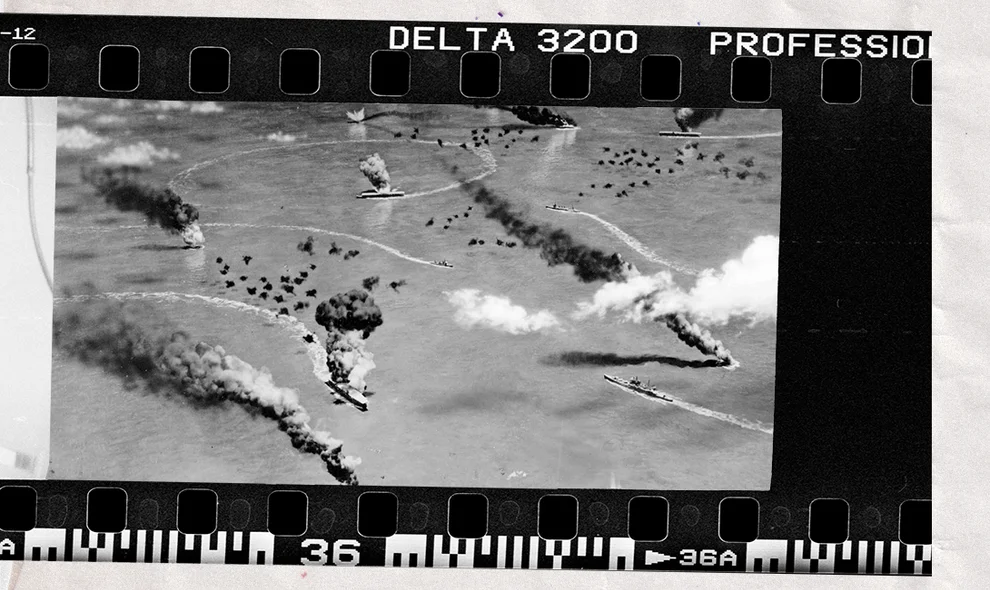
A Window of Opportunity in the Battle of Midway
In June 1942, enormous forces from both sides converged near the Midway Atoll. Japan had already carried out a successful attack on Pearl Harbor and planned to advance further across the countless islands of the Pacific. The United States, preparing to deliver a decisive response, had assembled a significant military force. Confident in its superiority, the Imperial Japanese Navy sought to lure the Americans into a trap. “Flying fortresses,” under the cover of light fighters, launched attacks on the Japanese fleet’s transport ships. However, none of the ships were sunk. At that moment, the Midway base was left almost defenseless. A retaliatory strike caused significant damage, and it seemed that the Americans would be forced to retreat. This might have been the most obvious decision, but Chester Nimitz gave the risky order for an immediate launch of the main forces to locate the Japanese aircraft carriers.
On June 3, at 7:45 a.m., fortune smiled upon the Americans: they caught the enemy fleet in its most vulnerable state. Most of the Japanese fighters were refueling and rearming on the carrier decks. In such conditions, the planes couldn’t take off quickly, and the ships had lost maneuverability, becoming easy targets. In just a few minutes, the Japanese lost three aircraft carriers (a fourth would be finished off later), a heavy cruiser, and 248 aircraft. This battle became the turning point in the Pacific theater of operations.
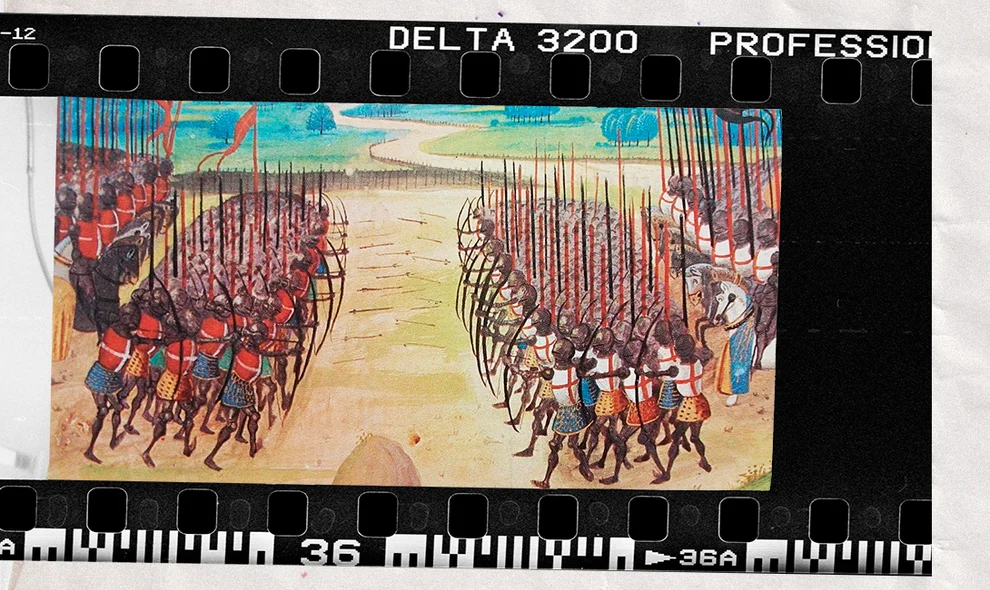
Mud Destroyed the Knights
The Battle of Agincourt took place on October 25, 1415, and was a key episode in the Hundred Years’ War. King Henry V of England had an army of 8,000 men, about 4/5 of whom were archers. The French, led by Charles d’Albret, fielded 10,000 knights and around 25,000 other troops. The balance of forces clearly pointed to a decisive French victory. With no rush, the French commanders likely thought they could rest and start the battle the next morning. That night, however, heavy rain fell, turning the battlefield into a swamp.
"One can imagine a knight without a princess, without a horse, and even without a sword, but without a dragon, the knight becomes meaningless." – Viktoria Ugriumova
When the signal for the attack was given, the French knights charged forward on horseback but, after a few hundred meters, became bogged down in the mud. They had to dismount and continue on foot, all the while under a hail of arrows. The English archers, positioned advantageously on a hill, rained arrows down on the helpless infantry. There were enough arrows for everyone. France lost up to 10,000 soldiers killed, and over 1,000 knights were taken prisoner, a humiliation that was considered unthinkable. What was expected to be an easy victory turned into a disaster for the French. As a result of this battle, English King Henry V became the heir to the French throne. Moreover, the institution of knighthood was shaken, and European powers began to abandon this ancient tradition.
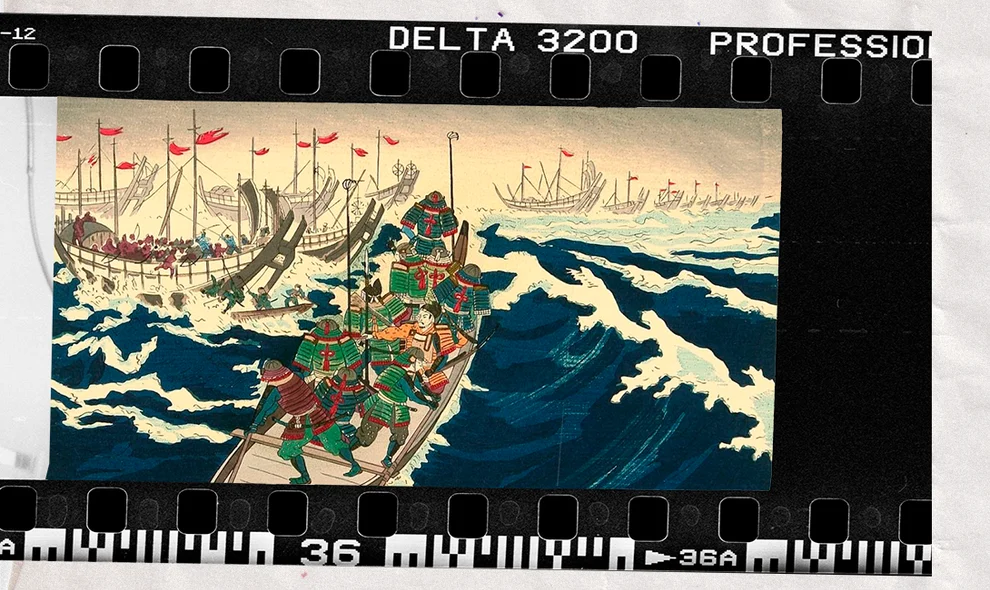
Defeat Without a Battle
The Mongol Empire is renowned for its continental conquests. At the height of its power, it controlled much of Eurasia. After reaching the natural barrier of China’s southeastern coast, Kublai Khan set his sights further — to the islands beyond the Yellow Sea. The first campaign took place in 1274. A Mongol army of 30,000 landed on Tsushima and easily defeated the Japanese, moving forward from there. However, as Kublai’s fleet approached Kyushu, it encountered an unexpected adversary. A typhoon scattered the ships, killing the commander, Liu. The expedition returned to the mainland with one goal: to amass even greater strength for the next attempt.
In 1281, the Mongol-Korean and Chinese fleets set out to sea once again. Several hundred ships and over 100,000 men were meant to crush Japan. But things quickly went awry: the Chinese fleet was delayed, arriving later than planned, which postponed the invasion. During this time, the smaller Eastern Fleet suffered a defeat after encountering Japanese coastal fortifications. When the Mongol forces finally united, they were struck by another typhoon. The Japanese called this phenomenon the “Divine Wind,” or kamikaze. Kublai considered a third campaign, but the empire had begun to fragment, and the council did not approve funding for the construction of another 500 ships.

Fog Saved the USA
The American Revolution, or the War of Independence, began in 1775 when the thirteen colonies refused to submit to the British crown and took up arms. In the early years, the Continental Army suffered a series of painful defeats, which wasn’t surprising. Farmers, craftsmen, and laborers were fighting against the professional soldiers of the world’s most powerful empire at the time. The critical moment came in August 1776. After another unsuccessful battle, the Continental Army found itself trapped on Long Island (modern-day Brooklyn). About 9,000 exhausted militia members prepared to face an attack from a 30,000-strong British force. According to American commander George Washington, they had almost no dry gunpowder or food left. The British could have taken New York with bayonets alone but hesitated, waiting to fully blockade the strait.
“Those who feel no guilt need no forgiveness. We are only defending what we consider our inalienable rights.” – George Washington
Washington also hesitated: he faced a dilemma — preserve or destroy the city to deny the enemy a convenient base. Despite the large number of loyalists in New York, the decision was made not to destroy it. On August 24, the British began their landing. They encountered little resistance and quickly advanced inland. However, it turned out that, the previous night, under the cover of fog, most of the militia had evacuated to the mainland, slipping past British patrol ships in the bay. This fortunate turn of events allowed the most experienced fighters to be saved. It’s unknown how the history of the USA might have unfolded had Washington been decisively defeated on Long Island.








